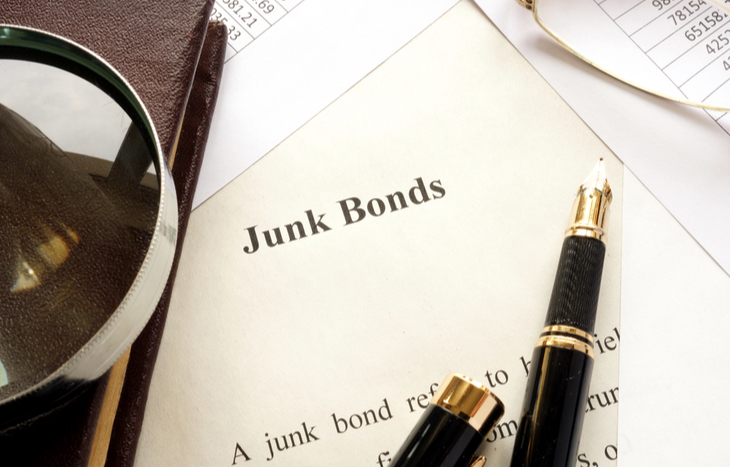What Are Junk Bonds?

Junk bonds have the potential to produce substantial profits if the issuing company improves over time. So, what are junk bonds? And are they good investments to make? Let’s take a closer look below.

What are Junk Bonds Exactly?
Bonds are fixed-income debt instruments that corporations and governments issue to investors to raise capital. In general, the investor is effectively loaning money to the issuer. And as a result, the issuer promises to repay the money on a specific date. This date is known as the maturity date. Many bonds also offer interest payments along the way which investors call coupons.
However, what are junk bonds exactly? They’re high-yield bonds that carry a higher risk of default. And this is because these bonds are usually issued by start-ups or companies that are dealing with financial struggles.
Therefore, this investment comes with more risk due to the likelihood of the company defaulting. This leads to uncertainty in the company’s ability to repay the principal and the investors ability to earn regular interest payments.
Due to this, the companies must be willing to pay a higher yield if they want to attract investors. In fact, it’s compensation for the additional risk and uncertainty that the investor is willing to take on.
Pros and Cons of Junk Bonds
Investing in companies with financial instability doesn’t seem like a great idea at first glance. But the higher the risk, the higher the reward.
Junk bonds have the potential to realize significant price increases. And this comes down to the company’s ability to improve their financial situation.
These bonds are also a great risk indicator for the market in general. It shows when investors are willing to take on more risk or avoid it altogether.
But what are junk bonds without this added risk? Well, that is what separates them from other fixed-income debt securities that have better credit ratings.
Junk bonds are more likely to face volatility due to the financial uncertainty of the business. And the risk of default is higher than investment grade corporate or municipal bonds.
Are Junk Bonds Safe?
It’s important to note that all investments come with some level of risk. And some come with more than others. That is why many investors stay away from junk bonds altogether.
However, more optimistic investors are willing to take on the additional risk in hopes of reaping the rewards.
You must make the decision to invest in junk bonds depending on your specific investment goals and circumstances. If the company begins to perform better financially, the bond may very well pay off in your favor. Nevertheless, you must be willing to take on the risk of the company defaulting.
Consider a Company’s Credit Rating
What are junk bonds and how does the company’s credit rating factor into the equation? A credit rating is an assessment of the creditworthiness of the company based on its outstanding debt and other financials. It works similarly to your personal credit rating.
The company’s credit rating will play a major role in the market price of the junk bond and the interest rate it comes with. That is why it is vital for all bond investors to keep a close watch on a bond’s credit rating before making an investment decision.
Investing in Junk Bonds
Bonds are investments that come with varying levels of risk and reward. And none of them push both ends of that spectrum harder than junk bonds. The risks are highest and the rewards are as well.
To learn more about the different types of bond investments, sign up for the Liberty Through Wealth e-letter below. You can learn more about how the bond market works and why it can help you build wealth in your life.
Overall, what are junk bonds going to do for your portfolio? That depends on your specific investment strategy. But one thing is for sure, you must be willing to take on more risk for the potential of higher returns.







